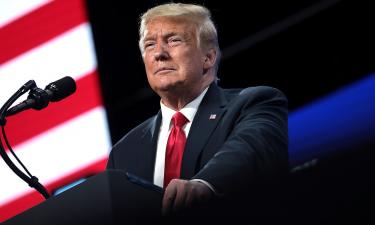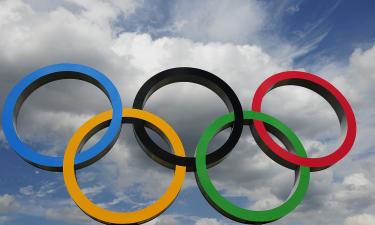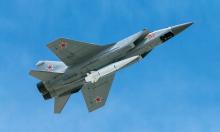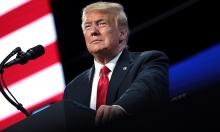Putin’s course proves correct as colour revolutions fail to fulfil expectations
The first “revolutionary” cycle in the post-Soviet expanse, as it appears today, has reached its conclusion. Two and a half years have passed since the “rose” revolution, a year and a half since the “orange” revolution, and the “tulip” revolution took place just over a year ago. Therefore we can definitely make some preliminary assessments. On the whole it is clear that the colour revolutions have been discredited, the hopes that were bound up in them have not been fulfilled, and the revolutionary countries have not become a positive example for other states of the former USSR. Rather the opposite is the case... But we will talk about that a bit later. For the time being let us recall what the situation looked like in the post-Soviet expanse at the moment when the revolutionary throngs in Kyiv and Galichina were ready for a carnival in the capital’s Maydan, but were waiting for a signal to get started.
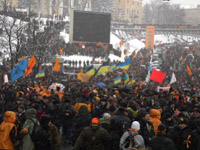
A mistake by the President?
Russian President Vladimir Putin has ruined his reputation and has wasted his influence, having supported the wrong side in the political clashes in Ukraine and the breakaway Georgian province of Abkhazia … This displayed Russia ’s ineffectiveness in relations with former Soviet republics where it longs to play a dominant role.
The New York Times. Editorial Article. 8th December 2004
The reports predominant in the world’s media at that time were fairly uniform. Admittedly there were some renegades and dissidents among Western authors (such as Jonathan Steele and John Laughland) who, as they saw it, were trying to expose the bitter truth to readers. In actual fact, of course, these authors had no compunction about besmirching in the eyes of the world’s public the rosy image of future die-hard revolutionaries and the masses of people led by them, longing for freedom, and the network of Western bodies (including intelligence agencies) who were encouraging democratic change. But there were only handfuls of dissidents, and they were unable to implant doubt in the minds of the Western public about the correctness of the general line.
It looked as if the whole world was grieving for the democratic forces in post-Soviet countries which had no freedom and only the Kremlin headed by Vladimir Putin not only disagreed with the advance of democracy, but was resisting its onset in every possible way. Instead of at least morally joining the forces of good, Russia’s president picked the side of the “criminal regimes”.
A relay of freedom or destabilizing domino effect?
… Russia and the region are changing quickly. After the toppling of three pro-Russian regimes in the course of the last 17 months the Kremlin is dealing with a completely different former USSR. Any plans for creating a “single economic space” to compete with the EU have been buried. Any attempts to expand Russian military power to neighbouring countries have been cancelled out.
Newsweek. How to handle Russia. 3rd May 2005
Having spoken out on the side of “evil”, the Russian leader naturally had lost, and furthermore ruined his relations with the West, which he has established with such difficulty over the years. The process had been started and appeared to be unstoppable. Political analysts made bets about the order in which democracy would come to countries where the people had not yet chosen the path to freedom. It seemed that Moscow had lost out wherever it was possible to, and had completely lost control around its border, apart from in Belarus. But by that time even relations with Minsk had been spoiled because of Lukashenko’s contradictions.
Aleksandr Lukashenko was the last obstacle to the “democratic wave”. It seemed certain that he would be removed in the near future, in fact it was not ruled out that “ Europe ’s last dictator” would leave the political stage with Russia ’s assistance. And following Belarus freedom would even come to authoritarian Russia. And rightly so.
That is probably what would have happened, if the revolutionary countries had shown the world high economic growth, a good example to their neighbours, having secured ahigh level of political stability, and in general, if they had set off down the path towards prosperity and sustained development. However, the facts prove that the opposite is the case. I will not repeat myself; I will just quote some figures. A few days ago the CIA brought the data in their book of facts up to date, adding figures for 2005. According to estimates of the US intelligence agency, the gross national product per head of population (taking into account a comparison of purchasing ability) in the members of the Single Economic Space is as follows: Russia $ 10 700, Kazakhstan $ 8 800, Belarus $7 700.
Technically Ukraine is the fourth participant in the SES, but the country’s orange leadership has been successfully stonewalling their participation in the project for a year and half, thus has beenhindering the development of the whole SES. During Viktor Yanukovich’s premiership Ukraine ’s level of GNP had moved close to that of Belarus, and they were starting to catch up Kazakhstan and Russia. “The revolution changed all that.” According to the results of 2005 Ukraine’s GNP per head of population is $6 800. The GNP of Georgia, which became democratic a year before Ukraine, has reached $3 300, and tulip Kyrgyzstan - $1 800. Furthermore, I would like to direct your attention to Moldova (GNP per head: $2 100), I will now explain why.
At first glance, Moldova has no place on a list of revolutionary countries, as in this country the “power of the people” has not overthrown “the criminal regime”. On the other hand, a couple of years ago, under pressure from the USA and the European Union Kishinev rejected a plan, suggested buy Moscow, for settling the problem of Pridnestrovie, and since then has banked decisively on the West. So in Moldova too a kind of “velvet revolution” has taken place. As far as Kyrgyzstan is concerned, then it can obviously be removed from the anti-Russian list.
So the new elites of three countries – Ukraine, Georgia and Moldova – have recently orientated themselves emphatically towards the West, and their initiatives in the international sphere are unambiguously directed against Russia. At the same time, only a part of the population of these countries shares the political views of their authorities. Therefore Tbilisi’s jurisdiction does not extend to Abkhazia and South Ossetia, Kishinev to Pridnestrovie, and the South-East of the Ukraine practically does not view Yushchenko as its president. And the political and economic prospects for the three countries are exceptionally gloomy.
Strength or truth?
The West gave money, inspired the revolution, which is now leading the country to ruin. But it does not pay any attention to that, just as long as Mr. Putin does not have the last word.
Le Temps. Ukraine : Putin was right. 22nd September 2005
In the modern world, in conditions of globalization, when even large countries cannot always defend their interests without enlisting the support of some other centre of force, the sovereignty of small countries is an increasingly relative concept. As time showed, Mr. Putin’s position was the most correct, responsible and forward-looking, but hardly anyone was interested in Russia’s point of view, as the West thought differently.
Of course in life anything can happen and sometimes the leaders of newly independent states turn out to be people representing a specific clinical interest. In that case it is hard to do anything and one can only wait and see. But as a rule new elites look around in all directions, survey the situation surrounding them and, depending on what they see, choose one or another line of action.
Some more time will pass, and the heads of small states (of accountable ones, it goes without saying) will finally understand that strong does not necessarily mean fair, and rich does not always mean generous. Nevertheless, the stronger Russia becomes, the more reliable it is as a political ally and more expedient as an economic partner, then the calmer it will be on its borders, and the more impervious the elites of neighbouring countries will be to anti-Russian provocation.
Aleksey Kovalev for Pravda.Ru
Translated by James Platt
Subscribe to Pravda.Ru Telegram channel, Facebook, RSS!
